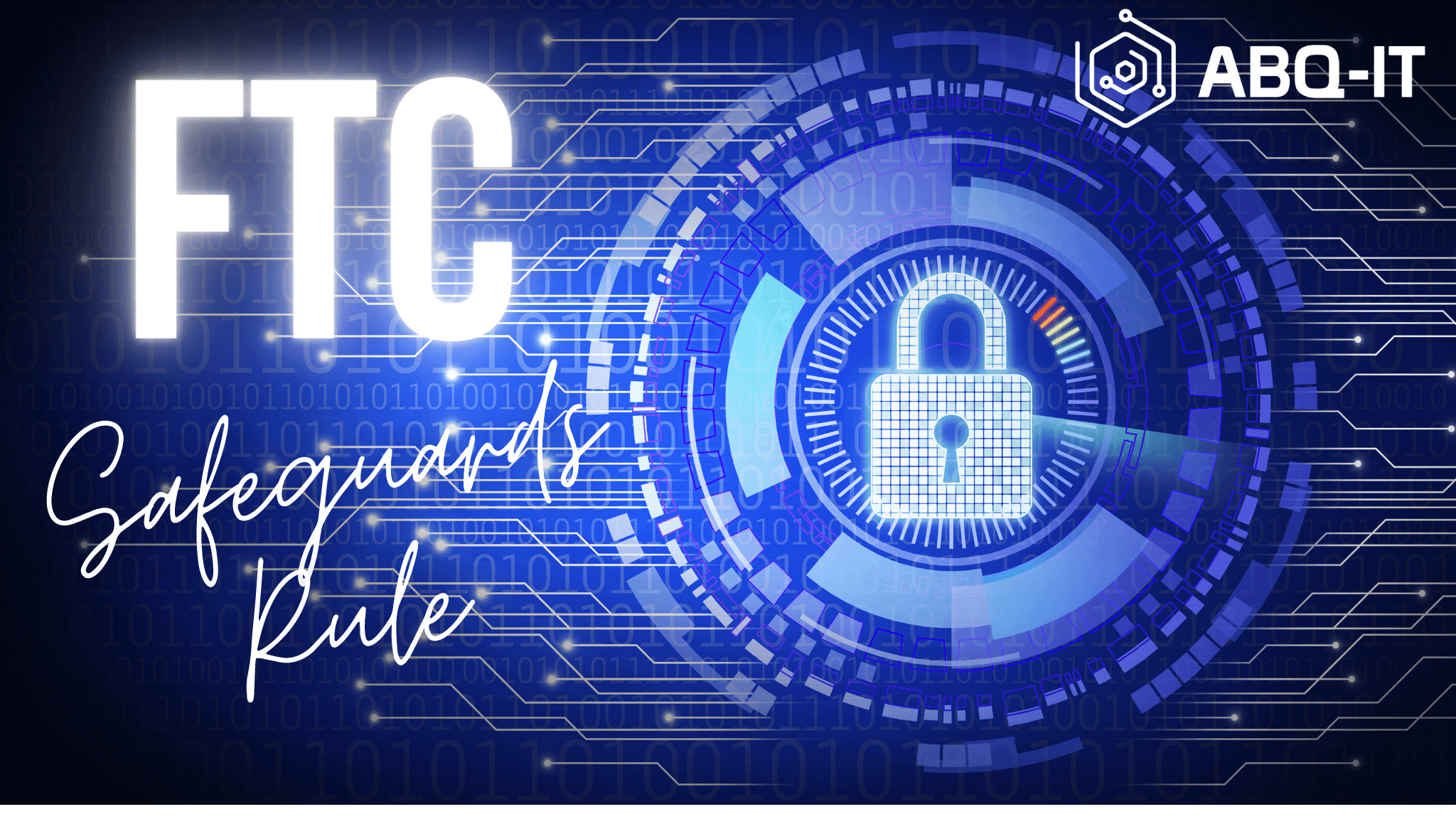
Explanation of the FTC Safeguards Rule
The FTC Safeguards Rule is a regulation established by the Federal Trade Commission (FTC) to protect consumers’ personal financial information from unauthorized access or misuse. It requires that financial institutions have reasonable and appropriate administrative, technical, and physical safeguards in place to protect this information. The FTC Safeguards Rule applies to financial institutions, including banks, credit unions, and other companies that offer financial products or services, such as mortgage companies, auto dealers, and credit counselors.
In this blog, we will provide a comprehensive overview of the FTC Safeguards Rule, including its purpose, requirements, and the steps organizations can take to comply with it. Whether you’re an auto dealer, CPA firm, mortgage company, home appraiser, credit counselor, or financial advisor, this blog will provide you with the information you need to understand the FTC Safeguards Rule and protect your customers’ sensitive information.
The FTC Safeguards Rule and its significance to businesses
Purpose and background
The purpose of the FTC Safeguards Rule is to help protect consumers’ sensitive personal and financial information. The regulation was created in response to the growing need to safeguard sensitive information in the digital age. The FTC Safeguards Rule requires financial institutions to implement physical, technical, and administrative safeguards to protect consumers’ information from unauthorized access or use.
Relevance to businesses
The FTC Safeguards Rule is relevant to businesses that handle sensitive personal and financial information of their customers, clients, or employees. This includes a wide range of industries such as financial institutions, mortgage companies, credit counselors, home appraisers, auto dealers, CPA firms, and financial advisors, just to name a few. Failure to comply with the FTC Safeguards Rule can result in significant fines of over $50K per violation and damage to a business’ reputation. That’s why it’s important for these businesses to understand the requirements of the FTC Safeguards Rule and implement appropriate measures to ensure compliance.
Who is Affected by the FTC Safeguards Rule?
The FTC Safeguards Rule applies to financial institutions that are subject to the jurisdiction of the Federal Trade Commission (FTC). This includes a wide range of businesses, including banks, credit unions, savings and loans institutions, mortgage companies, finance companies, and other lenders.
Explanation of the size and type of business affected
The FTC Safeguards Rule applies to all financial institutions, regardless of size. This means that businesses of all sizes, from small, local operations to large, multinational corporations, are subject to the rule. The rule applies equally to businesses that operate primarily in the physical world and to those that operate primarily in the digital world. Businesses that maintain less than five thousand consumer records are excempt from certain parts of the rule.
Discussion of the impact of the rule on affected businesses
The FTC Safeguards Rule requires financial institutions to implement measures to protect the confidentiality and security of their customers’ information. This includes taking steps to prevent unauthorized access, use, and disclosure of customer information.
For businesses that are subject to the rule, failure to comply with the FTC Safeguards Rule can result in substantial penalties, including fines, legal action, and loss of business. The impact of the rule can also be significant from a reputational perspective, as businesses that are not in compliance may be seen as unreliable and untrustworthy by their customers.
Therefore, it is important for businesses that are subject to the FTC Safeguards Rule to understand the requirements of the rule and take the necessary steps to comply.
Key Components of the FTC Safeguards Rule
The FTC Safeguards Rule is made up of several key components that businesses must follow in order to ensure compliance. Some of these components include:
- Conducting a Risk Vulnerability Assessment: This involves evaluating the nature and extent of the personal information that the business collects, stores and uses.
- Designing and implementing a comprehensive information security program: The program must be based on the results of the risk assessment and must take into account the size, complexity, and the scope of the business’s operations.
- Continuous monitoring and prevention: Implement a system capable of detecting and responding to attacks and intrusions on your network.
Discussion of the risk assessment process
The risk assessment process is a critical component of the FTC Safeguards Rule. This process involves evaluating the nature and extent of the personal information that the business collects, stores, and uses, as well as the risks to that information. The risk assessment must be thorough and must consider the size, complexity, and scope of the business’s operations. The risk assessment should also take into account the current state of technology and any new risks that may emerge over time.
Implementation
Once the risk assessment has been completed, businesses must design and implement a comprehensive information security program based on the results of the assessment. This program must take into account the size, complexity, and scope of the business’s operations and must be updated on a regular basis to address any new risks or changes in the business. The FTC Safeguards Rule also requires businesses to regularly monitor and test their program to ensure that it is functioning as intended and to address any new risks or changes in the business.
Start with a Cybersecurity Risk Assessment
Don’t wait until the last minute to start preparing for the FTC’s Safeguards Rule. The compliance deadline for certain provisions has been extended to June 9, 2023, but now is the time to take action and ensure the protection of your customers’ information. Contact Suubo today to schedule your free consultation phone call and start down the pathway to FTC Safeguards compliance.
Schedule a risk assessment with ABQ-IT today.

